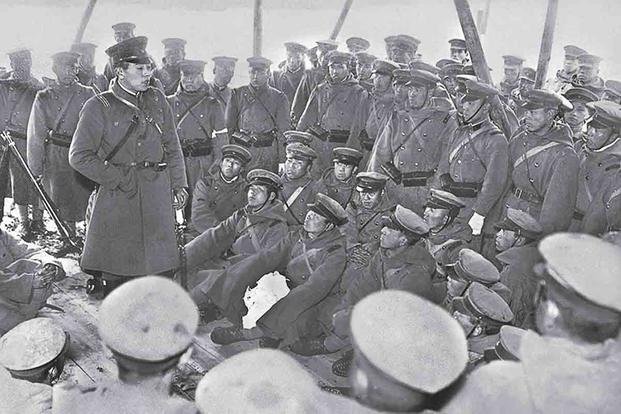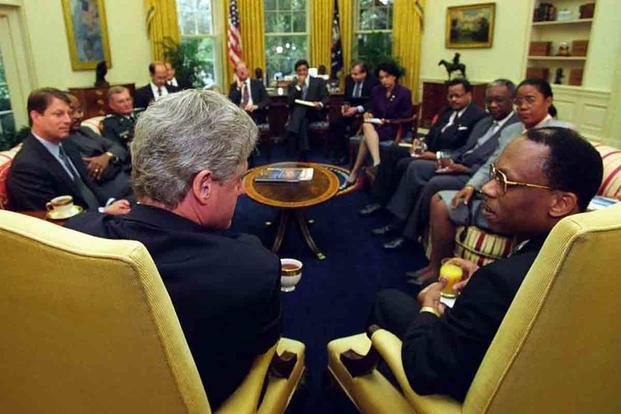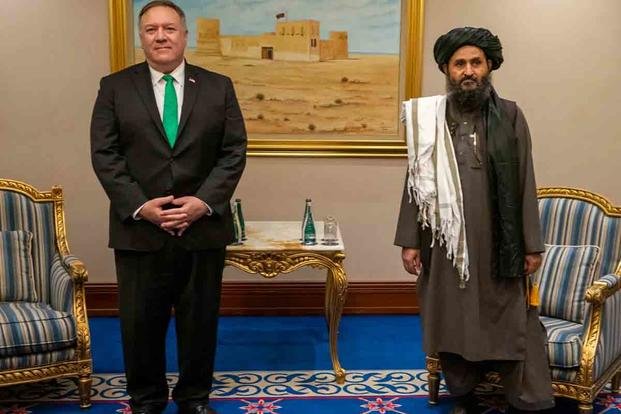Leap Day has a long history -- it's not something we all just arbitrarily decided to do one day. It dates back to Julius Caesar, the Egyptians and, later, Pope Gregory XIII, who all tried to perfect a calendar with a year 365.25 days and 11 minutes long, adding a day so the seasons don't get out of whack. We use a Leap Day every four years to keep the solar calendar and the seasons in sync with our calendar. Given enough time (around 755 years), winter would become summer, summer would become winter, so Leap Day is pretty important in that respect.
The one thing they all have in common is putting the Leap Day in February, traditionally a pretty cold month in the Western world. This means that it's often too cold for armies to be out battling each other on any day, let alone a day that only pops up once every four years, so there's not a lot of military history that happens on this day.
That said, Leap Day is not a totally uneventful anniversary in the annals of military history. Here are six important military events that took place on the strangest day on the calendar.
1. Raid on Deerfield (1704)

Queen Anne's War is also known as the War of Spanish Succession, but whatever you call the 1702-1713 conflict, it meant the so-called "great powers" were fighting each other across Europe. Eventually, the war spilled over into the New World, where British and French colonists and Natives in America started fighting each other, because Britain's queen wanted an Austrian archduke to rule Spain instead of a French duke.
The violence in North America at the time hardly seemed like battles -- there weren't enough people in the Massachusetts Bay Colony to sell out a Taylor Swift show, let alone conduct a pitched battle. Instead, large groups of unprofessional militia joined with Native allies to basically kill or capture other colonists. So it was on Feb. 29, 1704, when the French raided Deerfield, Massachusetts, killing 56 and capturing 112 before whisking the survivors off to Canada.
2. The Feb. 26 Incident Ends (1936)

In the years preceding World War II, Japan's army was essentially divided into two ideological camps. The Kodoha, or Imperial Way faction, believed in a dominantly militaristic society, driven by conquest under a totalitarian regime; specifically, it wanted to invade the Soviet Union and take Siberia by force. Conversely, the Toseiha, or Control faction, was more reserved and conservative, believing that any future war would be a total war and required the cooperation of all Japanese society, not just the military.
The rivalry between the factions came to a head in 1936 with an attempted coup by Kodoha army officers, who planned on assassinating seven important government ministers (including the prime minister) and seizing the War Ministry and the Imperial Palace. They not only failed in all three objectives, but then-Emperor Hirohito didn't support the rebellion and the Kodoha was forced to surrender in three days. Nineteen members of the uprising were executed in the aftermath.
3. The Siege of Sarajevo Ends (1996)

The 1992-1996 siege of the city of Sarajevo was the longest siege in the history of modern warfare, lasting 1,425 days and killing some 11,541 people. Continuous shelling and sniper attacks punctuated nearly four years of continuous combat during the Balkan War, a war that lasted just over 3½ years. (Yes, the siege lasted longer than the war itself.)
The Balkan War was the most violent conflict in Europe since World War II, displacing an estimated 2.2 million people, and resulting in more than 100,000 deaths. Its successful defense required the cooperation of Bosnian and Serb forces, along with air support from the United States and NATO allies. Airstrikes against the Yugoslavs certainly helped, but don't ask the locals about the humanitarian food aid.
4. The Chechens Attack Russian Forces at Ulus-Kert (2000)

It should be apparent, based on the invasion of Ukraine, that the modern Russian army has more flight than fight. What might be surprising is that it's been this way for a long time.
In 1999, Chechen separatists were fighting for their long-sought independence for a second time, and the bloodshed was beginning to spill across the border. Unfortunately for the separatists, Russia had a new president, one who wasn't putting up with it: Vladimir Putin.
Eight months of heavy fighting followed a Russian bombing campaign and land invasion of the region. After laying siege to the Chechen capital of Grozny, Russian forces moved to capture the mountainous countryside.
On Feb. 29, 2000, Russian Defense Minister Igor Sergeyev announced the end of major combat operations, but hours later, a curious event happened near Ulus-Kert: A mixed force of Russian paratroopers and special operators were attacked, overrun and annihilated by the Chechen forces they were trying to encircle.
5. Haitian President Jean-Bertrand Aristide Is Deposed (2004)

Jean-Bertrand Aristide was Haiti's first democratically elected president after the decadeslong rule of family dictators François "Papa Doc" Duvalier and Jean-Claude "Baby Doc" Duvalier. Aristide, a Catholic priest from a parish in Port-au-Prince, was elected in 1990 with 67% of the vote. He was ousted in a coup in September 1991, and everyone (including the U.S. Congress) suspected the CIA was involved.
Whether the agency was involved or not, Aristide was returned to power with the help of the U.S. military in 1994. His government allegedly began using street gangs to intimidate political opponents after his reelection in 2000, which led to a popular uprising against his presidency. Unable to maintain order and increasingly using terror tactics to keep a grip on power, the American government whisked him away to relative safety in the Central African Republic on Feb. 29, 2004, as peacekeeping troops returned to Haiti.
6. US and Taliban Sign Doha Agreement (2020)

On Feb. 29, 2020, the Trump administration and the Taliban signed a peace agreement in Doha, Qatar, which ended nearly two decades of constant conflict in Afghanistan. The deal was made up of four parts, in which the Taliban agreed not to allow Afghanistan to be used as a terrorist base against the U.S. and to engage with the current Afghan government to resolve differences. The United States agreed to set out a timeline for all foreign forces to leave the country and then stick to it. The Taliban also promised that it would consider talking about a cease-fire with the government of then-Afghan President Ashraf Ghani.
The intra-Afghan talks collapsed and the Taliban ended up overthrowing the Afghan government in 2021. President Joe Biden would (in)famously withdraw all American personnel from the country amid a Taliban blitz in September 2021. In the aftermath of the chaotic evacuation from Kabul's airport that claimed the lives of 13 U.S. service members, Biden claimed he was hamstrung by Trump's agreement with the Taliban, an agreement even Trump's national security staff called "weak." Biden's administration still took much of the blame for what appeared to be a fiasco.
Want to Learn More About Military Life?
Whether you're thinking of joining the military, looking for post-military careers or keeping up with military life and benefits, Military.com has you covered. Subscribe to Military.com to have military news, updates and resources delivered directly to your inbox.
















